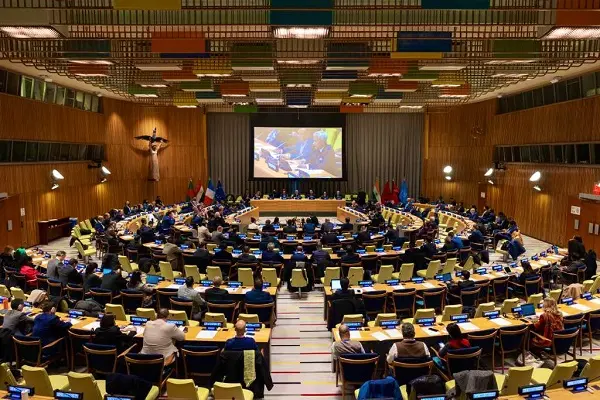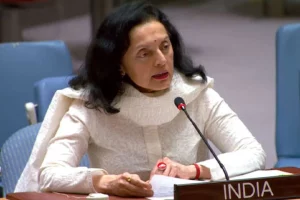Emphasising that combating terrorism is a battle in which there is no respite, External Affairs Minister S Jaishankar has said that the world cannot let another ‘9/11 of New York’ or ’26/11 of Mumbai’ happen again.
Making a statement at the UN Security Council briefing on ‘Global Counter terrorism Approach: Challenges and Way Forward’ in New York on Thursday, Jaishankar said that even though terrorism has been significantly countered and its justification de-legitimized in the last two decades, combating it remains work in progress – a battle in which there is no respite.
“The world cannot afford attention deficits or tactical compromises. It is most of all for the Security Council to lead the global response in this regard,” the minister said.
He spotlighted that India, Chair of the Counter Terrorism Committee of the Security Council this year, has faced the horrors of cross border terrorism long before the world took serious note of it.
“Over the decades, we lost thousands of innocent civilian lives. But we fought terrorism resolutely, bravely and with a zero-tolerance approach. As Prime Minister Narendra Modi has declared: We consider that even a single attack is one too many and even a single life lost is one too many. So, we will not rest till terrorism is uprooted.”
Nurse Anjali Kulthe, a valiant victim of the 26/11 terror attacks, also addressed the gathering, vividly sharing her recollection of the human cost of terrorism.
“Her testimony is a stark reminder to the Council and the international community that justice is yet to be delivered to the victims of several terrorist incidents, including the 26/11 Mumbai attacks,” said Jaishankar.
The briefing was a part of India’s ongoing efforts in the Security Council to re-invigorate the counter-terrorism agenda as Jaishankar said that the threat of terrorism has actually become even more serious.
“We have seen the expansion of Al-Qaida, Da’esh, Boko Haram and Al Shabab and their affiliates. At the other end of the spectrum are ‘lone wolf’ attacks inspired by online radicalization and biases. But somewhere in all of this, we cannot forget that old habits and established networks are still alive, especially in South Asia. The contemporary epicenter of terrorism remains very much active, whatever gloss may be applied to minimize unpleasant realities,” he said.
The minister mentioned four specific challenges with which the counter-terrorism architecture is currently grappling.
The first, he said, was the issue of terror financing and State culpability, “whether by commission or omission”.
Second, ensuring the integrity and accountability of the counter-terror multilateral mechanisms and their working methods.
Thirdly, he said, addressing double standards in countering terrorism, leading to concerns of politicization as uniform criteria are not applied to sanctioning and prosecuting terrorists.
“It would seem sometimes that the ownership of terrorism is more important than its actual perpetration or its consequences,” the EAM stated.
Last challenge, said Jaishankar, was countering threats from the misuse of new and emerging technologies by terrorists which is likely to be the next frontier of the battle.
Also Read: India declares its candidature for UN Security Council membership in 2028-29



















